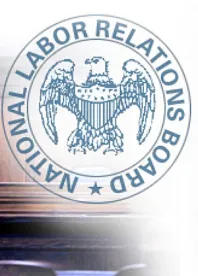On December 11, 2014, the National Labor Relations Board (NLRB) issued its opinion in Purple Communications, Inc. The NLRB decided employee use of email for statutorily protected communications on nonworking time must presumptively be permitted by employers who have chosen to give employees access to their email systems. The Purple Communications decision overruled the NLRB’s previous decision in Guard Publishing Co. d/b/a Register Guard, which had established an employer may completely prohibit employees from using the employer’s email system for reasons protected by the National Labor Relations Act (NLRA), even if they are otherwise permitted access to the system, without demonstrating any business justification, so long as the employer’s ban is not applied discriminatorily.
In Purple Communications, the policy at issue said,
Employees are strictly prohibited from using the computer, internet, voicemail and email systems, and other Company equipment in connection with any of the following activities:
. . .
2. Engaging in activities on behalf of organizations or
persons with no professional or business affiliation with
the Company.. . .
5. Sending uninvited email of a personal nature.
This policy was challenged as an unlawful violation of employees’ rights to engage in concerted activity as protected by the NLRA. The NLRB discussed the changing nature of work environments, including the increased prevalence of online communications, in deciding to overrule Register Guard. The NLRB held employers must allow employees who have access to company email systems to use those systems during nonworking time for union related activities and other concerted activity protected by the NLRA, unless there are special circumstances. The Purple Communications decision says, however, “we anticipate it will be the rare case where special circumstances justify a total ban on nonwork email use by employees.”
Employers who have policies prohibiting all nonwork use of company email systems should immediately contact employment counsel to evaluate your options. Purple Communications does not require employers to grant employees access to its email system where it has chosen not to do so, and employers are not prohibited from establishing uniform and consistently enforced restrictions, such as prohibiting large attachments or audio/video segments, if the employer can demonstrate they would interfere with the email system’s efficient functioning. Finally, employers should be attentive to future NLRB opinions that might expand the reasoning of Purple Communications to apply outside of the email context, such as to company phone systems or bulletin boards.





 />i
/>i

